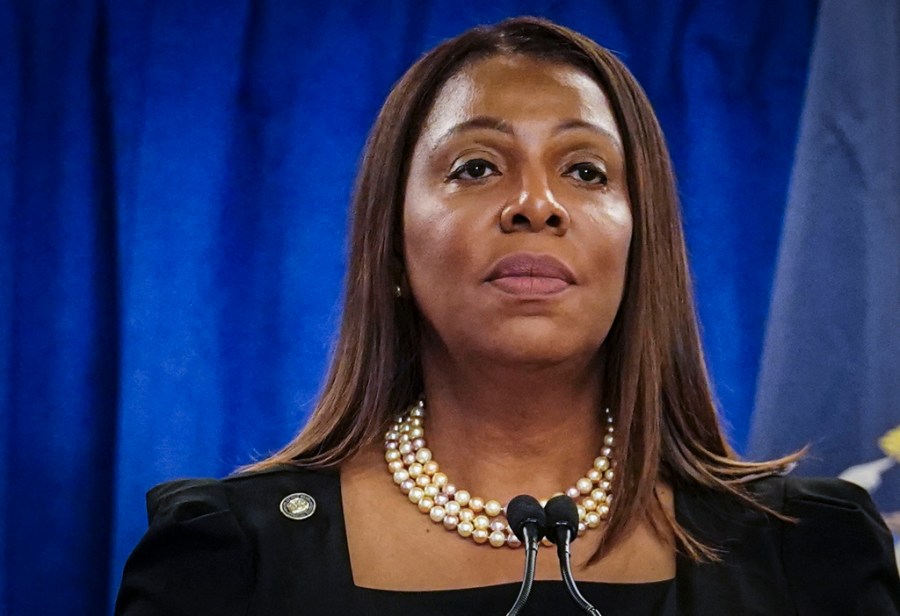Politics
Letitia James: Winning Lawfare but Losing the Battle

In today’s climate of lawfare, New York Attorney General Letitia James embodies a relentless approach to political warfare. Her appeal lies in her readiness to employ any tactic against her adversaries.
James’s initial campaign for her position was marked by a commitment to take down Donald Trump, pledging to secure some form of his legal downfall. She didn’t outline specific allegations; instead, she aimed to deliver a significant victory for Democratic voters. This strategy reflects the ideology of Prussian General Carl von Clausewitz, who viewed law as politics conducted through different means.
However, the narrative surrounding James’s political triumphs starkly contrasts her struggles within the legal arena.
James previously sought to dismantle the National Rifle Association, a powerful pro-gun entity, citing corruption and self-dealing among its leaders. Notably, she chose not to pursue liberal organizations facing similar claims. Ultimately, her efforts to dismantle the NRA crumbled in court.
Nonetheless, this did not deter James; she recognized that these ventures were largely performative, and that New Yorkers remained indifferent to their legal outcomes. Despite potential losses in court, she continues to excel in lawfare.
Recently, two prominent lawsuits led by James encountered setbacks in court.
One of her high-profile cases involves allegations of fraud against Trump, resulting in a $464 million judgment and a three-year prohibition on Trump engaging in New York’s real estate sector. This fine has since escalated to $489 million with accrued interest, levied in a situation where nobody incurred losses from alleged property valuation discrepancies related to Trump’s bank loans. Banks not only recouped their loans but profited substantially, expressing an eagerness to extend further credit to Trump.
In recent appellate discussions, James’s office encountered open skepticism from justices who echoed long-standing critiques of the exorbitant penalty imposed by Judge Arthur Engoron.
Justice David Friedman pointed out that the law should aim to shield the market and consumers, questioning its application in this case.
His colleague, Justice Peter Moulton, expressed concern over “the immense penalty” and sought clarification on how the fine correlates to any actual harm, given that all involved parties exited the transactions satisfied.
The underlying truth remains that this case transcended market concerns and ventured deeply into the political realm. The contentment of financial institutions is tangential; political happiness in New York carries its own set of implications. While there was no ruling this week, a decision may surface within a month.
In the same vein, James encountered a significant setback concerning her actions against pro-life organizations. She aimed to penalize these entities for reportedly disseminating “disinformation” against mifepristone, the commonly used abortion pill, while also advocating for reversal procedures if women reconsider before taking the second drug in the regimen.
Critics assert that although some studies suggest reversal methods yield success, the validity of such treatments remains questionable. The debate surrounding this issue is intense.
Undeterred, James sought to silence the discussion, resulting in legal action against two pro-life ministries, Summit Life Outreach Center and the Evergreen Association.
Judge John Sinatra Jr. intervened, blocking James’s efforts on the grounds of free speech infringement. Importantly, these organizations were not profiting from the dissemination of this information or promoting the reversal methods.
James claimed the right to regulate views she deemed unproven, ignoring that these organizations only aimed to share information rather than sell products.
Her approach mirrors the rationale employed by officials during the pandemic, who stifled dissenting expert opinions—now often deemed valid—to quell alternative perspectives.
James asserted authority over viewpoints labeled as “disinformation,” attempting to censor discourse on options that, while unverified, were not illegal.
Her previous attempt to compel doctors in California to promote abortion was stifled by the Supreme Court, which ruled that governmental bodies cannot mandate speech from licensed professionals.
Following this failed initiative, James shifted her focus to New York, declaring intentions to suppress opposing viewpoints. The court reaffirmed that under the First Amendment, government officials cannot arbitrarily classify certain opinions as “disinformation” to justify censorship.
If fraudulent or harmful practices emerge, the government possesses the authority to confront individuals or businesses involved. However, James’s pursuit aimed at silencing discourse on a treatment that remains lawful, albeit unapproved.
Her legacy seems to encompass efforts to dismantle civil rights protections, curtail free speech, and impose punitive fines against political rivals. Unfavorably, she garners admiration from some media outlets and political figures who frame her actions as crucial to “saving democracy.”
Ultimately, James knows her audience, and it is not the appellate judges. The legality of her actions or accusations of constitutional violations carries little weight for her. She appears committed to transforming the New York legal landscape into a theater for political thrill-seeking.
For some jurists, however, the excitement may be fading.
